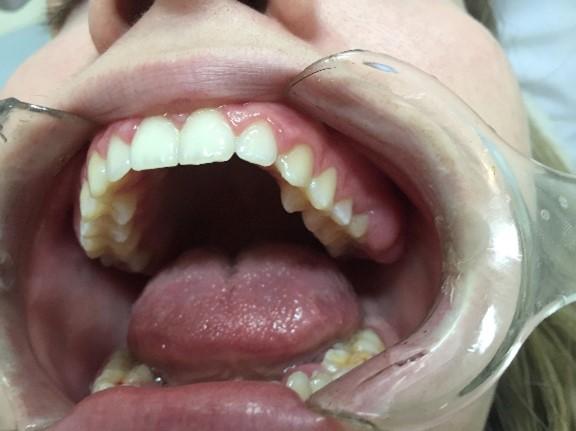
Credit: Pixabay user Vanessafrazao
Pathogens found in tissues that surround the teeth contribute to a highly aggressive type of oral cancer, according to a study published 1st October in the open-access journal PLOS Pathogens by Yvonne Kapila of the University of California, San Francisco, and colleagues. In addition, the study showed that oral cancer formation mediated by the pathogens is inhibited by a bacteriocin – an antimicrobial and probiotic peptide that is produced by bacteria.
Head and neck squamous cell carcinoma (HNSCC) is one of the most common cancers worldwide. Oral squamous cell carcinoma (OSCC), a subset of HNSCC, accounts for 90% of all oral malignancies, and it has a poor five-year survival rate that has not changed in decades. Risk factors, including smoking, alcohol consumption and human papilloma virus infection, alone have not been sufficient to explain the incidence and aggressive nature of OSCC. Other factors such as oral pathogens may play an important role in OSCC tumor development, progression and metastasis, yet this has not been well explored. Kapila and her collaborators tested whether OSCC is promoted by periodontal pathogens (i.e., those affecting the structures surrounding and supporting the teeth).
They found that three types of periodontal pathogens (Porphyromonas gingivalis, Treponema denticola, and Fusobacterium nucleatum) enhanced OSCC cell migration, invasion, and tumor formation in mice. These effects were mediated by interactions between two signaling pathways: integrin/FAK and TLR/MyDD88. The pathogen-mediated processes were inhibited by treatment with nisin – a bacteriocin and a commonly used food preservative. According to the authors, this study offers the first direct evidence that a bacteriocin inhibits oral cancer formation mediated by periodontal pathogens. Moreover, the findings suggest that nisin could have broad therapeutic potential as an antimicrobial and anticancer agent, and as an inhibitor of pathogen-mediated cancer formation.
The authors conclude, “Since a probiotic bacteriocin peptide, nisin, rescues this pathogen-mediated carcinogenesis, these findings could advance treatment for oral cancer and establish a novel paradigm for cancer treatment focused on antimicrobial-based therapies.”
###
Research Article
Peer reviewed; Experimental study; Animals
Funding: This study was supported in part by funding from the National Institute of Health (https:/
Competing Interests: The authors have declared that no competing interests exist.
Citation: Kamarajan P, Ateia I, Shin JM, Fenno JC, Le C, Zhan L, et al. (2020) Periodontal pathogens promote cancer aggressivity via TLR/MyD88 triggered activation of Integrin/FAK signaling that is therapeutically reversible by a probiotic bacteriocin. PLoS Pathog 16(10): e1008881. https:/
Author Affiliations:
Department of Orofacial Sciences, School of Dentistry, University of California, San Francisco, CA, United States of America.
Department of Periodontics and Oral Medicine, School of Dentistry, University of Michigan, Ann Arbor, MI, United States of America.
Department of Oral Medicine and Periodontology, Mansoura University, Mansoura, Egypt.
Department of Cariology, Restorative Sciences, and Endodontics, School of Dentistry, University of Michigan, Ann Arbor, MI, United States of America.
Department of Epidemiology, School of Public Health, University of Michigan, Ann Arbor, MI, United States of America.
Biologic and Materials Sciences, School of Dentistry, University of Michigan, Ann arbor, MI, United States of America.
Department of Periodontics, Oral Health Sciences, School of Dentistry, University of Washington, Seattle, WA, United States of America.
In your coverage please use this URL to provide access to the freely available paper: http://journals.
Media Contact
Yvonne L. Kapila, DDS, PhD
[email protected]
Related Journal Article
http://dx.



